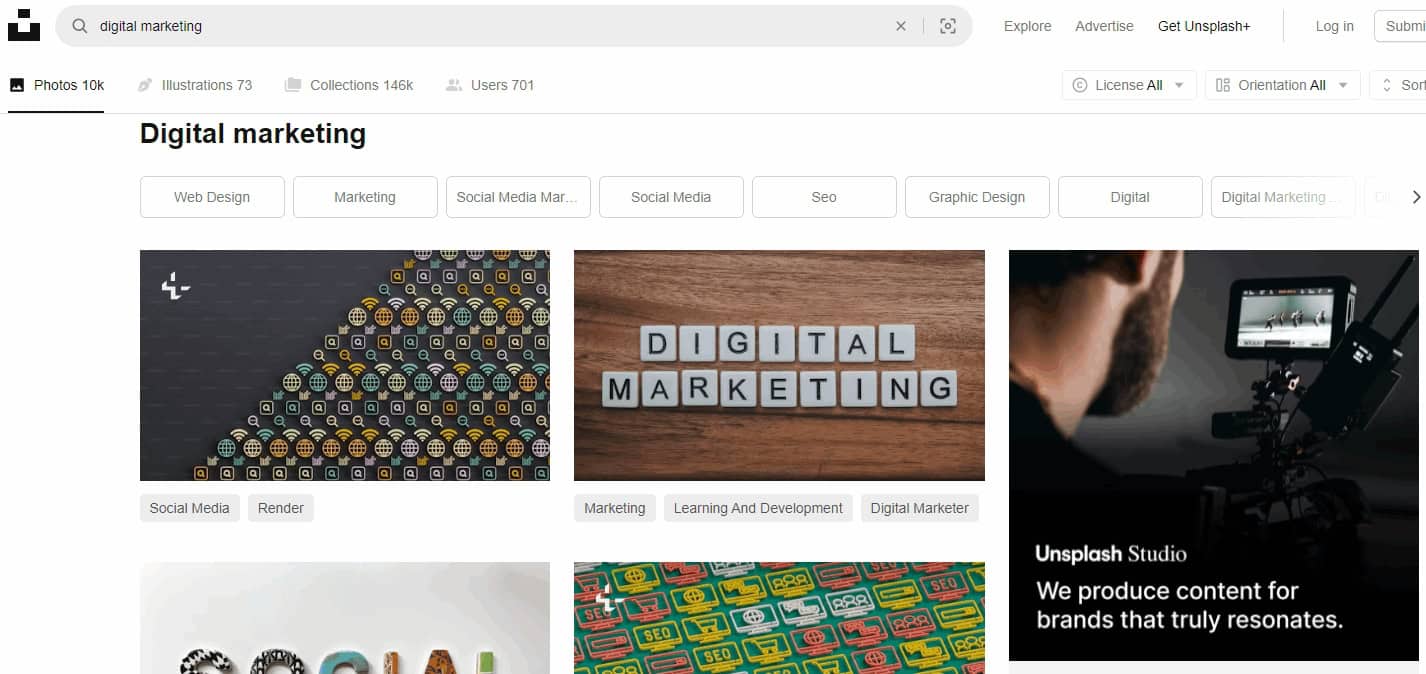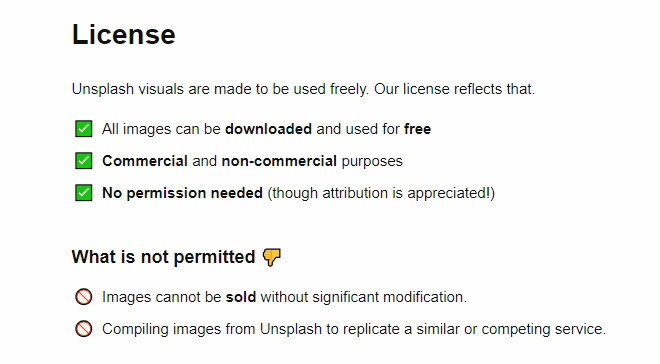Stock image sites are an invaluable resource for content creators, marketers, and business owners.
You can find millions of free and paid high-quality stock images on these sites and use them however you want.
But, if you’re reading this, you might wonder, “Can I use stock images on my website?”. You’re not alone.
It’s a common question with a detailed answer. No one wants to get in legal trouble for using images without proper permission or licensing.
So, let’s dive into the world of stock images and what you need to know as a website owner.
In this post, we’ll address it from several angles, including:
- Why use stock photos on your website in the first place?
- How do copyright laws protect stock photos?
- Where do you find and use them correctly?
- And more
Let’s get started.
Can I Use Stock Images on My Website?
The short and sweet answer is yes, you can use stock photos on your website. But, it’s important to understand different copyright laws associated with stock photos.
When you have the right knowledge, you can decide whether a stock image is safe to use on your website.
In case of misuse or copyright infringement, the owner of the image could send you a lawsuit, which can result in a hefty fine; It’s better to be careful than sorry and I know that from experience. Many years ago we had someone go after one of our websites for the most simple, generic icon you could imagine. They walked away with $350 and we completely revamped out processes to make sure it never happened again.
Before getting into the details of how and when to use stock images on your site, let’s quickly cover the basics and help you avoid the same mistake.
What are Stock Images?
Stock images are an incredible resource for content creators, website owners, and marketers.
They’re readily available photos you can download from stock media sites and use however you want. Depending on the license, you can use them for commercial or personal purposes without worrying about copyright infringement.
Stock media sites host images in all kinds of categories.
You can use their search feature to filter out the ones you want to download and use.
Here’s an example:

You can then click on any image you like and download it for free.
But, can you use these images on your site without worrying about copyright issues?
Yes, just look at the licensing rules of the platform or the image before using it.
Also, note that stock images can be free and paid.
Related: Optimize Your Images for Better Search Engine Visibility
Why Use Stock Photos on Your Website?
Stock images offer several benefits to content creators, website owners, and marketers.
Affordable
One stand-out benefit of using stock image sites is that they’re affordable.
This makes it easy for small businesses and individuals to find quality images without breaking the bank.
This is especially true if the alternative is to use a photographer or a professional graphic designer.
A lot of pictures on stock media sites are free. The paid ones aren’t expensive either. Some websites let you download everything for a small monthly fee. For example our Canva subscription costs less than home Internet service each month and features access to millions of images.
Easily Accessible
There’s no shortage of stock image websites where you can find images in almost every category.
For instance, if you’re a food blogger, you can find relevant stock photos with a simple search.

Lots of Options
If you don’t find what you’re looking for on one website, you have plenty of other options.
Plus, you can find images in different styles, colors, and formats on these sites.
Understand Copyright Laws Before Using Stock Photos
The question “Can I use stock images on my website” has a simple answer: It depends on that particular image’s copyright status.
If the license says you can use it for free, you can use it without worrying about copyright infringement.
But, if it’s not free and has a license, you need to use it accordingly.
For instance, some websites may need you to credit the owner of a photo.
It’s best to understand the usage guidelines before downloading any stock image.
Let’s talk about different stock image licenses every marketer should know about.
Royalty-Free License
Royalty-free images are the most popular; and, for a good reason. You can use these photos as many times as you want without having to worry about copyright infringement.
You can download these photos and upload them to your website.
Note that although you can use these photos anywhere you want, you may be required to pay a one-time fee initially.
Once you have the license for an image, you can use it:
- Within your emails
- On your website
- In your videos
- Offline
Rights Managed
With this licensing, you’re allowed to use an image for a specific purpose within an allocated time frame.
For instance, if you’re supposed to use a picture in a video, you can’t use it in a business flyer.
If you want to use an image after its license expiry date, you’ll have to renew your rights.
Editorial License
Images under the editorial license can only be used for newsworthy purposes.
These images normally appear in newspapers, magazines, and websites.
It’s important to note that you can’t use editorial pictures for commercial purposes.
How and Where to Find Stock Photos for Your Site
Not all stock photo websites are created equal. The quality and variety of images aren’t the same on every one of them.
Here are a couple of reliable stock image sites you can bank on.
Unsplash

Unsplash is a goldmine for creators, marketers, and business owners.
The website hosts a whopping 5 million images in its library.
Amazingly, you can use all images for free (For commercial and non-commercial purposes).

You don’t even need to give credit to the creator, although it’s appreciated and the platform makes it super-simple. After download, there’s a 1-click option to copy the HTML link for proper attribution just like I did with this image below:

Photo by Carlos Muza on Unsplash
The platform also has a paid plan in case the free one doesn’t meet your content needs. Overall, Unsplash is a fantastic resource for high-quality and diverse stock images.
Pexels

Pexels is another popular stock image website trusted by marketers all around the world.
The platform hosts high-quality images from professional photographers and creators.
It’s on our recommended sites list because it lets you download any number of images for free. You don’t have to give credit, but it’s always appreciated. Here’s an example of one I just downloaded with proper attribution added:

Photo by Pixabay: https://www.pexels.com/photo/three-white-and-black-scrabble-tiles-on-brown-wooden-surface-270637/
If you want to support the creators, there’s a button to donate directly to them on their profile page.
Pexels also has a curated collection of photos for specific themes or topics, making it easy to find relevant images for your content.
Their website is user-friendly and easy to navigate, with a search bar and filters to help narrow down your image options.
Overall, Pexels is another great option for finding high-quality and diverse stock images for your content needs.
Conclusion
Still wondering “Can I use stock images on my website?” The one-word answer would be yes. You just need to take care of a few things, such as properly crediting the source and making sure you have the right to use the image.
Stock images are incredibly useful for content marketers and advertisers.
You can use these images for all types of content, including social media posts, display ads, and more. With websites like Pexels, finding high-quality stock images has never been easier.
However, stock media platforms, such as Pexels and Unsplash, have their licensing rules.
Therefore, check their licensing terms before downloading any stock image from these sites.
Learn about the different types of image licenses to ensure you’re not infringing on anyone’s rights. This includes understanding the difference between royalty-free and rights-managed licenses.
Additionally, make sure to properly credit the source of the image when using it in your content. This can be as simple as including a line of text that says “Image by [photographer] from [stock media platform]” or adding a caption with the same information and a link to their page or profile.
It’s also important to note that even with proper licensing and attribution, some stock images may still not be suitable for certain types of content. For example, sensitive topics or controversial subjects may require exclusive or custom imagery to avoid potential legal issues.
In summary, stock images are a valuable resource for creating visually appealing content, but it’s crucial to understand their licensing rules and properly credit the source when using them. It
You May Also Like: Understanding Images and Videos in SEO



